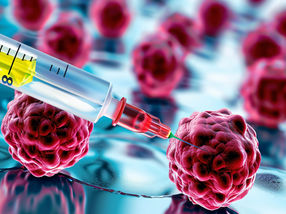Latest Research Shows Proof of Concept in the Development of New Drugs to Regenerate Damaged Tissues and Organs
New research announced by Plasticell, a UK regenerative medicine biotech company, shows how it is possible to identify novel small molecule drugs which encourage the body to regenerate, potentially paving the way for the development of pills for repairing organs damaged by disease or ageing.
Research presented at the World Stem Cells and Regenerative Medicine Conference in London shows how by using its screening technology, CombiScreen™, Plasticell scientists were able to identify a small molecule that stimulates progenitor cells, causing them to differentiate into the type of cell needed for tissue repair.
Progenitor cells are specialised precursors of mature cell types found in the body of the adult organism. Progenitors are rare and typically turn over very slowly, replacing cells lost through normal attrition, but, by stimulating with an appropriate molecule, tissue regeneration can be enhanced.
Dr Yen Choo, CEO of Plasticell, said: “This data is very encouraging, and heralds a new paradigm in the development of regenerative medicines, potentially paving the way for new synthetic drugs that regenerate damaged organs and tissues. Using our proprietary technology CombiScreen™, we were able to identify a small molecule that acts on progenitor cells to regenerate blood cells. By developing further assays to screen pharmaceutical drug libraries we believe it will be possible to develop regenerative medicines to treat a variety of serious diseases affecting other tissues such as the brain or heart.”
To demonstrate the new approach Plasticell, in collaboration with the pharmaceutical company GlaxoSmithKline (GSK), sought to identify a small molecule drug which mimics Granulocyte Colony-Stimulating Factor (G-CSF), a growth factor that stimulates bone marrow progenitors to produce neutrophils, a type of white blood cell. Plasticell developed a robust CombiScreen™ assay in which blood progenitors were generated in the laboratory from embryonic stem cells, and using these it was able to accurately identify the known test compound based on its ability to produce neutrophils.
Most read news
Other news from the department research and development

Get the life science industry in your inbox
By submitting this form you agree that LUMITOS AG will send you the newsletter(s) selected above by email. Your data will not be passed on to third parties. Your data will be stored and processed in accordance with our data protection regulations. LUMITOS may contact you by email for the purpose of advertising or market and opinion surveys. You can revoke your consent at any time without giving reasons to LUMITOS AG, Ernst-Augustin-Str. 2, 12489 Berlin, Germany or by e-mail at revoke@lumitos.com with effect for the future. In addition, each email contains a link to unsubscribe from the corresponding newsletter.




















































